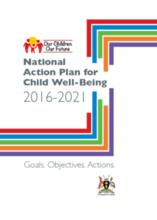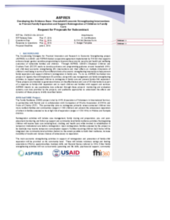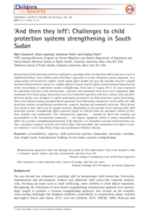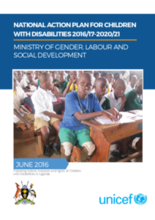Displaying 971 - 980 of 1617
This study explores the relationship between orphanhood prevalence, living arrangements and orphanhood reporting.
In this study, the researchers analyze how HIV contributes to the phenomenon of child-street migration in Kenya.
In this National Action Plan for Child Well-Being, Uganda spells out goals, plans, and actions it needs to take to improve child well-being in Uganda. The document points out that 62 percent of persons living in poverty are children. It notes that 33 percent of children under 5 are stunted, and it further states that only 37 percent of children make it to secondary education.
This report from UNICEF highlights the many dangers, risks, and challenges faced by unaccompanied refugee and migrant children travelling to Europe on their own to escape conflict, poverty, or other forms of oppression.
Cet article donne un bref aperçu de la question des mendiants et des enfants de la rue dans la ville de Bujumbura, au Burundi.
The Accelerating Strategies for Practical Innovation and Research in Economic Strengthening project (ASPIRES) is a USAID- and PEPFAR-funded cooperative agreement implemented by FHI 360 that supports evidence-based, gender-sensitive programming to
The research in this study explores how systems strengthening approaches promoted by humanitarian agencies are perceived to have transpired in South Sudan during the country’s transition to independence.
Uganda’s President Museveni has assented to the Children's (Amendment) Bill 2015, a bill that “seeks to strengthen the protection of children's rights and restrict legal guardianship of children to Ugandan citizens,” according to this article from All Africa.
This report captures what has been accomplished in social service workforce strengthening in eight countries in Sub-Saharan Africa and highlights areas for future intervention. Progress made to strengthen the social service workforce within these countries is useful when reflecting on global trends and ways forward.
The aim of the National Action Plan is to encourage government and other children’s rights actors to adequately plan for and respond to the holistic needs and aspirations of CWDs in Uganda.






